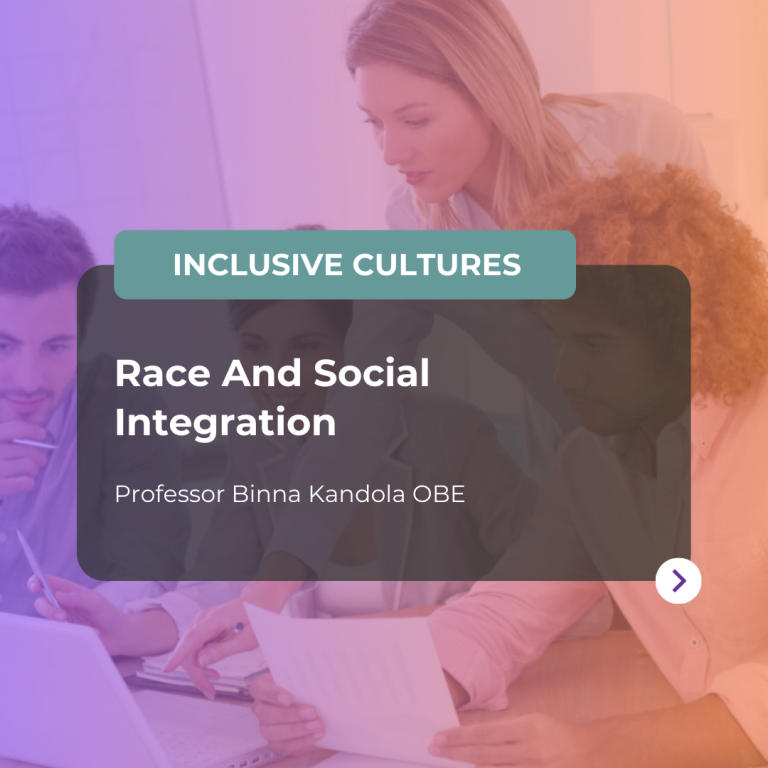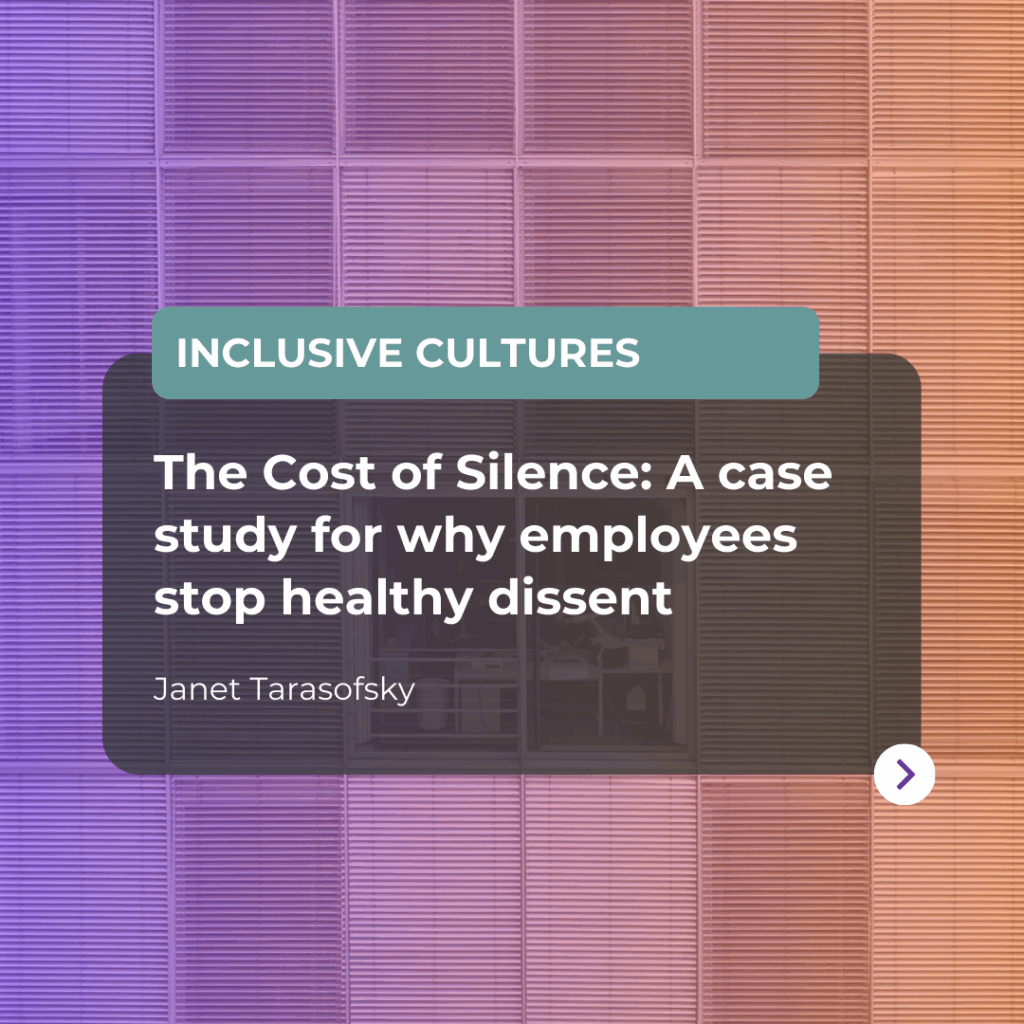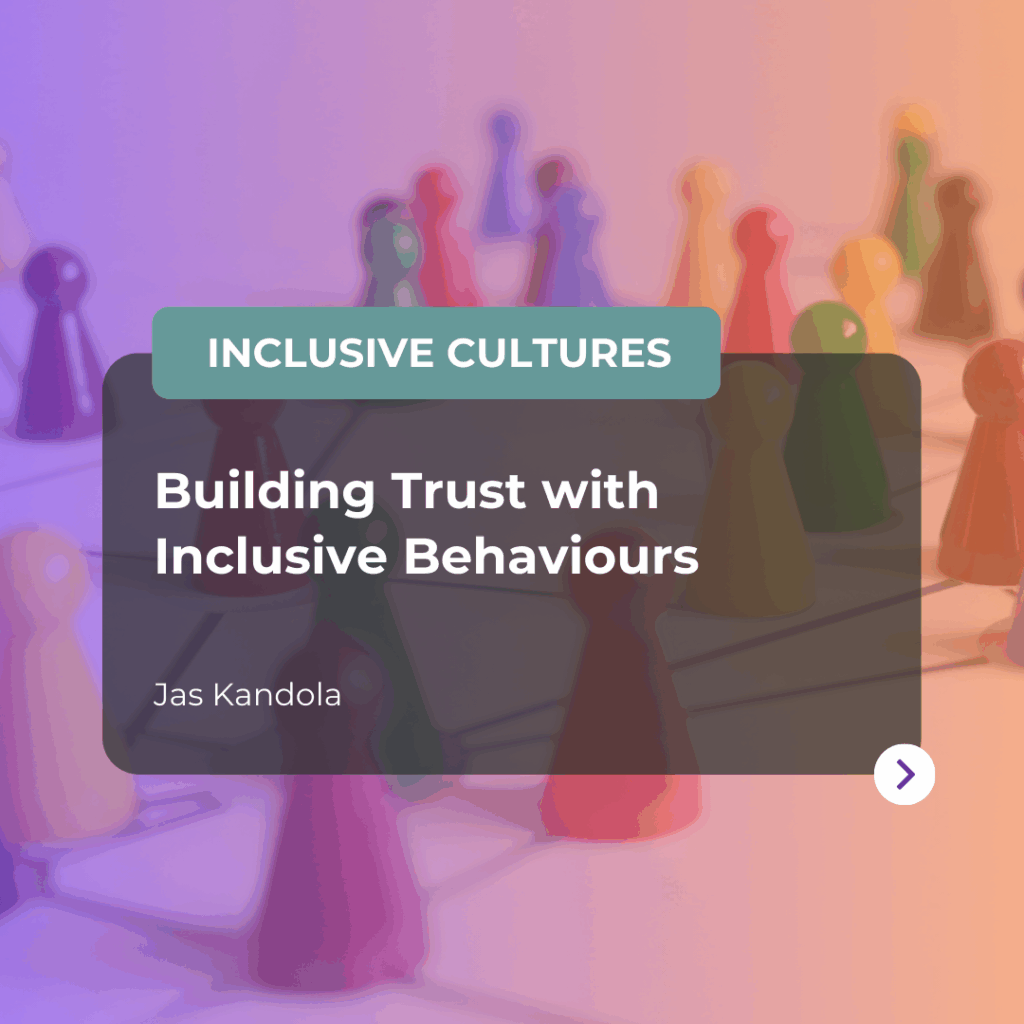We’re a social species. And this is so much more than a simple inclination or preference. Increasingly we’re realising that our connection to others plays a vital role for our health and well-being. For example, a massive study in 2010 reviewing evidence from 300,000 individuals, found that the quality of the connections in our lives predicts how long we’ll live better than blood pressure or exercise. In fact, it’s comparable to whether or not we smoke1.
The problem is that while we can control our social environment for the most part, we spend approximately 1/3 of our waking hours each week at work (assuming you work 40 hours), operating in a social bubble that we can have much less influence over. On the outside we can surround ourselves with our friends and relatives. At work, we need to slot into the social environment we find ourselves in, and we do not all experience it in the same way. In fact, if you are a racial minority in your workplace, this difference can lead to feelings of social isolation if not actively managed.
The way we are wired as humans means that we are consciously aware when we have surface level differences (e.g. race) to those around us, and we are more likely to define and differentiate ourselves based on this difference. In short, we know when we are a minority, and this can influence how socially integrated we feel at work.
When no efforts are made to help us feel integrated at work, research shows that this can impact on our performance. For example, a meta-analysis in 2012 found that individuals with surface level differences (including race and gender) to the majority of their colleagues were also more likely to feel socially disconnected if the organisation took no action to manage this. Where no efforts were made by the organisation to promote inclusive work practices, these individuals were also more likely to report lower engagement with their work, display lower job performance (task and discretionary), and were more likely to leave their organisation2.
However surface level differences such as race, only lead to feelings of social isolation if we let them. Where efforts are made to shape processes so that they encourage team members to rely on one another, and where leaders role model inclusive behaviour, the evidence suggests that racial minorities will feel just as socially integrated as majority group members. Most importantly, the research suggests that when we feel social integrated, we perform better and are more likely to stay. Inclusion is not simply a nice to have or ‘good management’. It is essential for any organisation employing people.
1 Holt-Lunstad, J., Smith, T., & Layton, J. (2010). Social Relationships and Mortality Risk: A Meta-analytic Review. PLoS Med 7(7), e1000316.
2 Guillaume, Y., Brodbeck, F., & Riketta, M. (2012). Surface and deep-level dissimilarity effects on social integration and individual effectiveness related outcomes in work groups: a meta-analytic integration. Journal of Occupational and Organizational Psychology, 85, 80-115.






